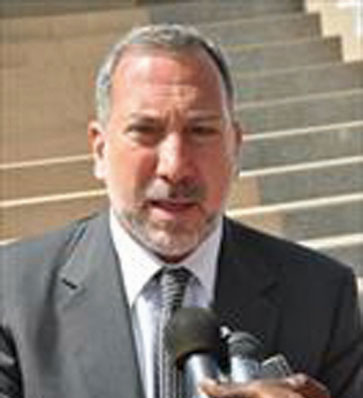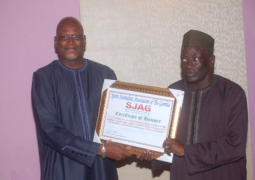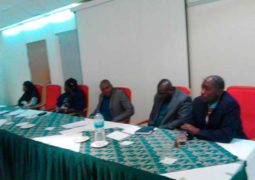
The outlook for the Gambian economy is generally favourable for 2013, but there are risks, the International Monetary Fund, IMF, said Wednesday.
An IMF mission led by David Dunn visited The Gambia from April 4-10, 2013, to conclude discussions on the first review of the authorities’ macroeconomic and financial program that is supported by the IMF under its Extended Credit Facility (ECF).
The mission met with President Yahya Jammeh, Minister of Finance and Economic Affairs Abdou Kolley, Governor of the Central Bank of The Gambia (CBG) Amadou Colley, and other senior officials.
At the conclusion of the visit, Mr. Dunn made the following statement in Banjul which was delivered at a press conference held at the Central Bank of The Gambia yesterday:
“The Gambian economy is still recovering from the severe drought of 2011. Real gross domestic product (GDP) grew by an estimated 4 percent in 2012, led by a partial rebound in crop production and strength in the tourism sector. Inflation remained under control, ending the year at just under 5 percent, despite the depreciation of the Gambian dalasi during the second half of the year. A substantial overrun in government spending late in the year resulted in higher-than-budgeted domestic borrowing (3½ percent of GDP).
“The outlook for the economy is generally favorable for 2013, but there are risks. Real GDP growth is expected to accelerate, if the recovery in crop production is sustained. Also, by accessing new markets, the potential for growth in tourism looks good. Inflation, however, has picked up, partly due to side effects from the introduction of the value-added tax (VAT) at the beginning of the year. For example, although the VAT is applied to firms with a turnover of at least one million dalasis, we understand that many smaller businesses also raised their prices opportunistically.
‘During the first quarter of 2013, government spending once again exceeded planned allocations, contributing to an uptick in Treasury-bill yields. Correspondingly high bank lending rates are discouraging private sector borrowing.
“The mission welcomes the Government’s decision to tighten fiscal policy by reducing its domestic borrowing needs to 1½ percent of GDP in 2013 and then to ½ percent of GDP a year or less, beginning in 2014, which will help lower the heavy domestic debt burden. The mission also welcomes the intention of the Government to submit a fully-funded supplementary budget to the National Assembly later this month.
“The mission also welcomes the CBG’s prudent monetary policy. Targets for reserve and broad money growth have been tightened to stem potential inflationary pressures and stabilize the dalasi, which has continued to weaken against most major currencies.
“The mission was encouraged by the authorities’ determination to strengthen the Government’s revenue collection. It supported the target of the Large Taxpayers Unit of the Gambia Revenue Authority (GRA) to achieve 100 percent compliance with taxpayers’ income tax filings in the current year, which will help broaden the tax base. This is necessary if business-friendly tax reforms—such as a reduction in tax rates—are to be considered in the future. The mission also welcomed efforts by the GRA to strengthen its audit functions.
“The mission reached agreement, and referendum, on program targets for 2013. The IMF Executive Board could consider the completion of the review by end-May 2013.
“The mission thanks the authorities for candid and constructive policy discussions and expresses its appreciation for the excellent cooperation during its visit.”
Read Other Articles In Article (Archive)

Dodou Joof (Alias Capi): SJAG’s contribution to Sports Award recipient
Sep 6, 2012, 10:20 AM
Choose the Kindom
Oct 9, 2013, 10:03 AM


